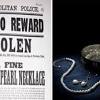China intervenes to manage commodity prices


BEIJING, Aug 4 (Reuters) - Chinese policymakers have been trying to tame surging commodity prices - from coal to copper - that have squeezed manufacturers' margins in the world's second biggest economy.
The country has been selling state reserves of coal, metals and imported corn to cool prices, but is buying pork to prop up a slumping market.
Below is a timeline of actions taken by various government bodies:
April 20: China's Ministry of Industry and Information Technology said it would stabilise commodities prices, crack down on speculation, and encourage smelters and fabricators to hedge on futures markets.
April 29: Key Chinese agricultural data provider, Cofeed, suspends operations.
May 11: At least three leading Chinese thermal coal pricing indexes suspend publication of daily assessments after spot prices surge 20% within a month.
May 12: China's Dalian Commodity Exchange (DCE) proposes lowering standard iron content requirements in ore delivered against its flagship futures to 61%.
May 14: Regulators in Shanghai and the steel hub of Tangshan warn mills against price gouging, collusion and irregularities. read more
May 17: DCE hikes transaction fees on some coke and coking coal contracts.
May 18: The National Development and Reform Commission (NDRC) says it will take measures to stabilise iron ore and steel markets. read more
Shanghai Futures Exchange (ShFE) raises margin and trading limits on steel rebar and hot-rolled coil futures.
May 19: China's cabinet asks coal producers to increase output to meet peak summer demand and pledges to step up management of commodity supply and demand, including stockpiling and reinforcing inspections on spot and futures markets. read more
May 23: NDRC, the industry ministry and regulators urge major domestic metals companies not to drive up prices of copper, coal, steel, and iron ore. They also pledge to strengthen inspections of futures and spot markets and crack down on irregularities and speculation. read more
May 25: NDRC says it will strengthen price controls on iron ore, copper, corn and other major commodities in its five year plan for 2021-2025 while stepping up monitoring and analysis of commodity prices such as crude oil, natural gas and soybean.
May 26: China's banking regulator bans banks from selling commodities-linked products to retail buyers. read more
June 9: Shortly after China reports that factory gate prices rose at their fastest annual pace in more than 12 years in May, the NDRC says China will closely monitor price movements of commodities and step up price forecasts.
June 10: A team of government inspectors visits major coal hubs in northern China to investigate inventories and illicit hoarding. read more
June 16: The National Food and Strategic Reserves Administration (NFSRA) says it will release copper, aluminium and zinc via public auction. read more
June 18: China's state planner and market regulator jointly launch an investigation into coal prices. read more
June 21: NDRC says it and the market regulator are probing spot iron ore trading.
June 23: NDRC says it and the market regulator have sent teams to Chinese provinces and cities to investigate bulk commodity prices and supplies.
June 27: NDRC says it plans to build up around 100 million tonnes of deployable coal reserves in the country this year.
June 28: NDRC launches probes into the urea market after fertiliser prices surge to record highs.
NDRC says pork will be purchased for state reserves after live hog prices plunge 65% since January.
July 4: China Merchandise Reserve Management Centre says it will buy 20,000 tonnes of frozen pork for state reserves.
July 5: NFSRA auctions 50,000 tonnes of aluminium, 30,000 tonnes of zinc and 20,000 tonnes of copper.
July 9: China Merchandise Reserve Management Centre says it will buy 13,000 tonnes of frozen pork.
July 15: China says it will release more than 10 million tonnes of coal from state reserves, adding to the more than 5 million tonnes already released this year.
July 16: NDRC says China plans to boost its national coal reserve capacity to around 600 million tonnes, or 15% of annual consumption.
July 17: China's Ministry of Industry and Information Technology says it will crack down on commodities hoarding and speculation.
July 18: China Merchandise Reserve Management Centre says it will buy 20,000 tonnes of frozen pork.
July 29: The NFSRA releases 30,000 tonnes of copper, 90,000 tonnes of aluminium and 50,000 tonnes of zinc.
July 30: NDRC says some major companies have suspended fertiliser exports to focus on domestic supply after it summoned firms for discussions about hoarding and speculation.
Aug 1: New rules on the management of price indexes for commodities and services come into effect to standardise price index compilation and transparency. read more
Aug 3: China's Dalian Commodity Exchange says it investigated 48 cases of "abnormal trading behaviour" in July.
Reporting by China Commodities and Energy team; Compiled by Shivani Singh; Editing by Kirsten Donovan
Our Standards: The Thomson Reuters Trust Principles.


 United Kingdom
United Kingdom Argentina
Argentina  Australia
Australia  Austria
Austria  Brazil
Brazil  Canada
Canada  Germany
Germany  Ireland
Ireland  Italy
Italy  Malaysia
Malaysia  Mexico
Mexico  New Zealand
New Zealand  Poland
Poland  South Africa
South Africa  United States
United States 











